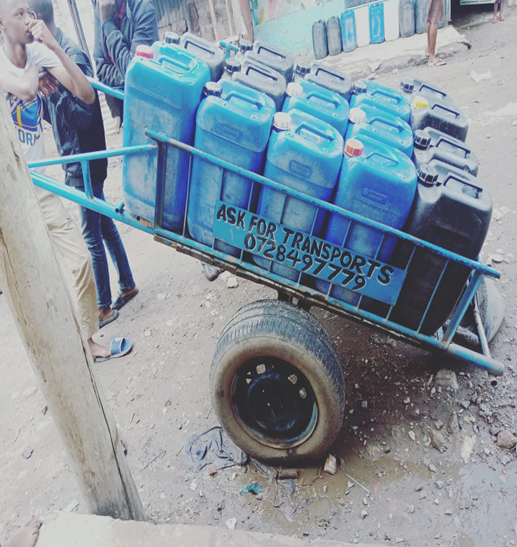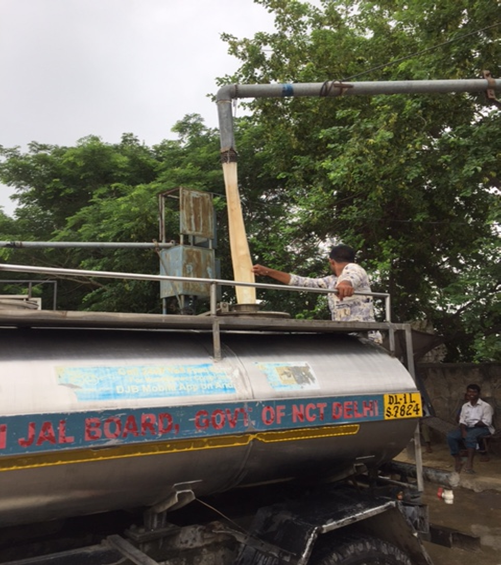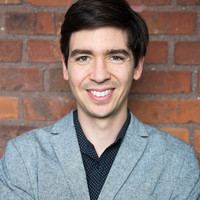Historically, cities have built their drinking water service provision based on the principle of universal coverage that relies heavily on formal piped water supply offered by a few municipal actors. However, in cities of the Global South these formal service provision systems are often very fragmented and can face shortcomings in meeting the water demands of all urban water users. Importantly, the urban poor that live in informal settlements are often disconnected from these services and therefore complement their drinking water needs with a plethora of informal water services.

As part of the research project (WaterFlow), “Making the water flow Conflict(s) and cooperation between formal and informal urban water regimes in Asia and Africa” (2019-2022), funded by FORMAS, the objective has been to understand the kinds of conflict(s) and cooperation that take place between formal and informal drinking water services in the Global South.
The project has focused particularly on learning from two cities, Nairobi (Kenya) and Delhi (India). Equally, in Nairobi and Delhi, full coverage of water provision through formal ‘piped’ water has not been realised and therefore both metropolitan regions contain a broad water infrastructure spectrum from centralised, tightly coupled monopoly networks, to more splintered service provision models. Therefore, the urban poor in these two cities are using a variety of options to meet vital water needs beyond piped water supply, such as water tanker tracks, community and private boreholes as well as water provided by water cart vendors.

Photo credit: Vishal Narain
In both cities, municipalities have been resisting recognition of this heterogeneity of urban water services despite their importance for the urban poor resulting in numerous forms of conflict(s) and cooperation that are usually missed by policy makers and water authorities. Turning to conflicts first. In the Delhi case, we found that conflicts although often subtle and drawn along lines of caste and class, they effectively determine which users become served first and by which water service regime (formal or informal). In Nairobi on the other hand, conflict(s) can be very dynamic and often violent involving clashes between different groups, vandalism or verbal conflict.
Despite the prominence of these kinds of conflict(s) we found at the other side of the spectrum, evidence of strong levels of cooperation in the interactions among the actors. In a recent publication from the WaterFlow project, we have discussed how institutionalised practices make it possible for water users to access both formal and informal modes of water provision, particularly during times of water scarcity. Furthemore, these same practices compel the formal urban water actors to accept the informal actors even though in official parlance ‘informal’ actors will be treated as ‘illegal’. We find evidence that these interactions have become normalised over a long period of time and therefore tend to remain rather stable despite the existence of conflicts in both cases.
Further to our empirical research, we have sought to engage with municipal water authorities, policy makers, researchers and water practitioners on the importance of conflict(s) and cooperation as an important step towards achieving the sustainability of the entire urban water system as well as equity in water access and distribution. With seed funding received during 2022 from KTH Sustainability Office we hosted a policy and research workshop in Nairobi on the 8th of December 2022 with participation of important water stakeholders. The workshop was used as a platform to discuss how formal and informal water services and actors can better co-exist, and to provide recommendations for improving water services to the urban poor and achieving sustainability.
A key recommendation from the workshop was that more efforts are needed to include water consumers from low-income settlements in the policy process. Namely, the key policy actors need to address water users’ experience with informal services in a more transparent way when designing water policies so that these experiences are not forgotten when implementing water policy plans.
The policy actors further noted a need to improve coordination across formal-informal water services such as by creating an apex body at municipal level that can function as a single window grievance cell for water users (regardless of whether the water service is formal or informal).
The policy actors finally recommended to set-up a mechanism (such as a regulation or contract between the regulator and the water provider) to monitor the water price and quality of informal water delivery services. This can help reduce discrepancies in the pricing and quality of the water provided by formal and informal water providers.
However, it was also clear from the workshop that these recommendations require tackling more systemic obstacles in water service provision in the Global South. Lack of trust between the formal and informal water providers means that they can often undermine each other. While structural problems in water delivery, such as corruption can act as a serious barrier to cooperation. It was crucially noted, that long-term sustainability tends to be side-lined in favour of short term political gains. That is why local politicians (city and municipal level) may often lack training and awareness around the role of different water service regimes.
International recognition and cooperation to achieve the positive links between access to water and sanitation services and people’s livelihood, health, dignity and freedom is growing. With the SDGs and the human right to water shaping the global policy discourse, there is greater recognition of diverse configurations of public, private and community providers of drinking water. However, our research shows that there is still work to be done to understand what causes of conflict(s) and what types of cooperation models work better in different contexts. This is particularly true for the water sector as much as other critical sectors in cities and will be a necessary part of the puzzle of achieving the SDGs.
Contact and more information


